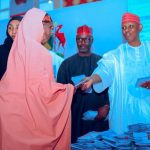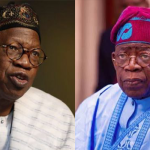Khadijah Aliyu
Africa, home to 24% of the world’s disease burden but only 3% of its health professionals, is turning to its youth to help chart a path toward greater health sovereignty, speakers said at the opening of the 8th Galien Africa Forum in Dakar on Monday.
The three-day conference, themed “Rethinking Health Leadership: Preparing a Generation Capable of Defending Africa’s Health Sovereignty in a Technological and Globalised World,” has drawn more than 2,500 participants — including scientists, policymakers, development partners, and students — attending both in person and virtually.
The forum, organised under the leadership of Professor Marie Coll Seck, President of Galien Africa, aims to re-examine the continent’s contribution to global health leadership and strengthen its capacity to define and drive its own priorities.
One of the highlights of the opening day was an exhibition of young African scientists presenting technological solutions to long-standing health challenges. Among them were projects on universal access to healthcare using biometrics and artificial intelligence (AI), safe water hubs, and integrated health systems. Participants were invited to evaluate and endorse the most promising ideas for future adoption.
Two medical students, Samuel Afolabi from the University of Ibadan, Nigeria, and Lydia Ankomah Oben from the University of Ghana Medical School, presented a project on universal access to healthcare leveraging biometrics and AI. Speaking to Emefa Ewoenam Atiamoah-Eli, the West and Central Africa Regional Coordinator for REMAPSEN, Afolabi said technology could play a decisive role in closing Africa’s healthcare access gaps.
“Many people in Africa lack the proper data needed to access quality healthcare. Some spend hours at hospitals for consultations that should take minutes, while others walk several kilometres just to see a doctor,” he said.
The duo’s mobile application, designed to simplify access and improve data accuracy, aims to help communities better manage their health needs. Oben said education and awareness in remote areas were essential for the tool’s adoption and sustainability.
“With adequate support from governments and development partners, the innovation can be scaled up across the continent,” she added.
Professor Bamba Gaye, a research scientist in preventive cardiology at the Institute of Health and Development, University Cheikh Anta Diop of Dakar, urged African nations to take ownership of their health data to ensure AI systems reflect the continent’s realities.
“Africa must become an active contributor to AI systems by feeding them with its own data to avoid biased, externally sourced information that misrepresents our true health conditions,” Gaye said.
In her address, Prof. Seck said Africa was becoming a hub of innovation and must scale up the production and promotion of locally developed health solutions.
“Africa is not just a continent, it is the driving force for innovation,” she said, calling for stronger resource mobilisation and collaboration to advance health sovereignty.
Senegal’s Minister of Health, Dr. Ibrahima Sy, who declared the forum open, urged participants to treat health sovereignty as a collective duty rather than a slogan.
“Reclaiming autonomy over Africa’s health requires deliberate action — investing in youth training and technological innovation in healthcare delivery,” he said.






